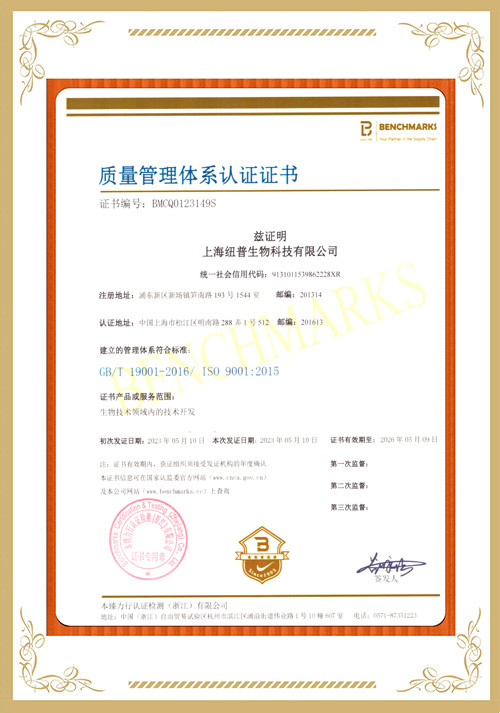- 抗体类型:单克隆
- 抗体来源:小鼠
- 抗体应用:WB, IHC-P
- 特异性:Human
产品详情
-
产品名称
Anti-p53 (2H4) Mouse antibody
-
抗体类型
单克隆
-
抗体来源
小鼠
-
抗体亚型
小鼠IgG1
-
抗体描述
p53 (2H4) Mouse monoclonal antibody
-
抗体应用
WB, IHC-P
-
应用推荐
WB: 1/500 - 1/2000
IHC: 1/200 - 1/1000
ELISA: 1/10000
-
特异性
Human
-
制备方法
Antigen: Purified recombinant fragment of human p53 expressed in E. Coli.
-
组分
Ascitic fluid containing 0.03% sodium azide.
-
储存方法
Store at 4°C short term. Store at -20°C long term. Avoid freeze / thaw cycle.
-
背景介绍
Swiss-Prot Acc.P04637.p53 responds to diverse cellular stresses to regulate target genes that induce cell cycle arrest, apoptosis, senescence, DNA repair, or changes in metabolism. p53 protein is expressed at low level in normal cells and at a high level in a variety of transformed cell lines, where it's believed to contribute to transformation and malignancy. p53 is a DNA-binding protein containing transcription activation, DNA-binding, and oligomerization domains. It is postulated to bind to a p53-binding site and activate expression of downstream genes that inhibit growth and/or invasion, and thus function as a tumor suppressor. Mutants of p53 that frequently occur in a number of different human cancers fail to bind the consensus DNA binding site, and hence cause the loss of tumor suppressor activity. Alterations of this gene occur not only as somatic mutations in human malignancies, but also as germline mutations in some cancer-prone families with Li-Fraumeni syndrome. Multiple p53 variants due to alternative promoters and multiple alternative splicing have been found. These variants encode distinct isoforms, which can regulate p53 transcriptional activity.


